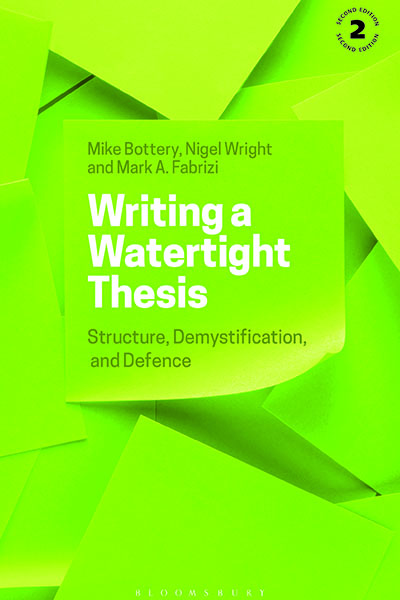- Apply
- Visit
- Request Info
- Give
Fabrizi's book offers tips for a 'watertight' thesis
Written by Molly Boucher
Published on February 09, 2023
Mark Fabrizi, associate professor of education at Eastern Connecticut State University, has published “Writing a Watertight Thesis, 2nd edition,” with Bloomsbury Publishing. The first edition, which was completed by Fabrizi’s co-authors, Mike Bottery and Nigel Wright, also includes input from Fabrizi.

The book, which recommends that writers attend to the structure of main arguments early in the writing process, allows for building an argument from a strong foundation. Fabrizi explained the importance of this, specifically in the interest of a long-term project: “A dissertation requires years of research and preparation, and after so much time spent with it, one sometimes feels too close to it to offer an objective analysis.”
Focused on writing and building a clear argument, Fabrizi took inspiration from his time as a high school English teacher. “The book is focused on developing a strong structured argument and having taught Advanced Placement Language and Composition for more than 10 years when I was a high school English teacher, I understand the value of undergirding an argument with a watertight rhetorical structure. Those experiences motivated me to want to help with the second edition.”
The teachings of a watertight thesis don’t stop for Fabrizi at his book, or even his time as a high school teacher. Instead, he carries the lessons he writes about to his classrooms at Eastern, teaching and encouraging students to solidify their own arguments. “I emphasize rhetoric and argumentation in my secondary literacy and English teaching methods courses, and the book offers concrete guidance and effective exercises to support students,” he explained.
Fabrizi also said that while the book is focused on a long-term thesis such as a doctoral dissertation, the lessons and techniques can be applied to any level of higher education. “The book's value in that regard is not limited to a doctoral dissertation alone; the underlying advice can be applied to master's theses or undergraduate papers in virtually any discipline.”


